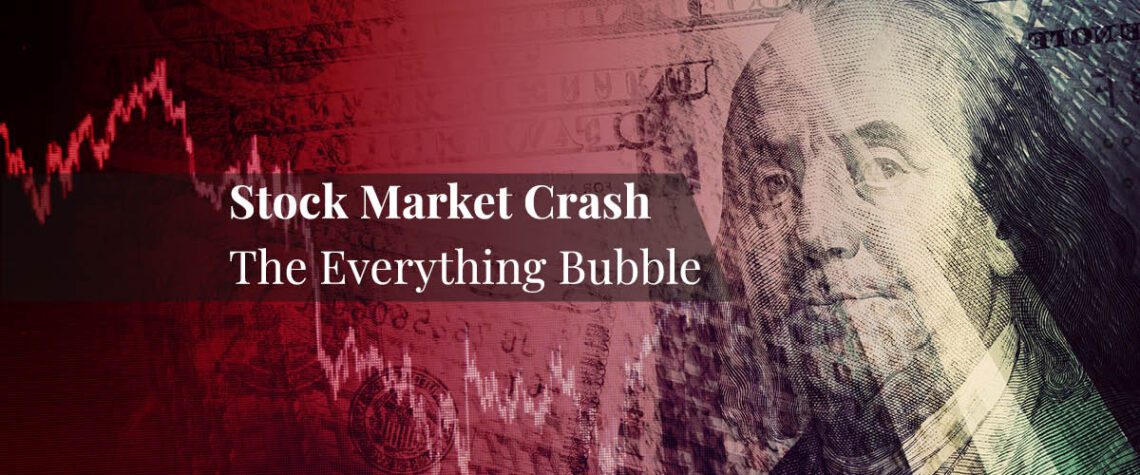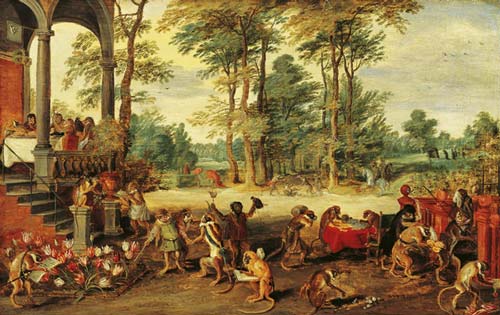
Stock Market Crash – The Everything Bubble, Tulip Mania and the Second Great Depression
God has surely tested them in order for them to see that they are but beasts. For the fate of the sons of men and the fate of beasts is the same
– Ecclesiastes 3:18-19
Money was unlimited, everyone was getting rich and valuations for investors always went up. The greatest asset of them all was the tulip and the masses were gambling with them. You could buy a tulip for the equivalent of a few dollars and sell it later for the price of a house! This was the Netherlands in the seventeenth century.
Then on 3 February 1637, the world fell apart. Everybody awoke from the haze of madness and realised their investments were worthless. The speculative bubble burst; tulip bulbs were just bulbs and everyone wanted to sell them. The price crashed back to reality and the madding crowds lost everything.
Tulip Mania is back again today, but this time it’s called the Everything Bubble. Lust, greed and the fear of missing out are fuelling a ballooning crisis from crazy stock markets valuations to the international debt quagmire and the housing market bubble. The tulip of yesteryear is like the dark crypto-currencies of today, mixed with the madness of money printing, zombie companies drowning in debt and the illogical valuations for businesses that can never turn a profit. Everybody wins until it all crashes!
Governments should rein back the absurdity but are pouring fuel onto the fire with quantitative easing, forcing interest rates to their lowest levels ever recorded and giving away ‘free money’ to all, including bankrupt companies. When the music stops, we will be in danger of repeating 1929 and entering the second great depression. God help us.
The artist Jan Brueghel the Younger (1601-1678), mocked those who deceived themselves into believing prices will always go up and that real value doesn’t exist. In Satire of Tulip Mania, 1640, he depicts those who were considered the brightest minds of their age as little more than silly monkeys.

Men behaved like animals moving in a herd following others without thinking. These monkey investors are shown throwing their money at anything, negotiating, weighing their tulips and counting the cash. Just like today, the professional and the amateur lost their minds in the fumes of speculation, as the logical investment world evolved into a gambling casino. The end was misery for all, with men like monkeys in debtor’s court or being taken to the grave.
John Templeton observed that bull markets ‘are born on pessimism, grow on scepticism, mature on optimism and die on euphoria.’ When the bubble bursts, those at the bottom suffer double for the sins of others. The winners will sail away on their yachts, whilst millions worldwide queue at food banks and lose their homes. Two thousand years ago, Paul sent a message to a young pastor called Timothy saying:
For the love of money is a root of all kinds of evil, for which some have strayed from the faith in their greediness, and pierced themselves through with many sorrows
1 Timothy 6:10
I fear for the poorest in society and citizens of the developing world when this house of cards falls; those at the bottom will pay the dearest. Those who gamble and win continue until the house takes all. Jesus once told the story of a wealthy man who decided he always wanted more and concluded with this:
But God said to him, ‘Fool! This night your soul will be required of you; then whose will those things be which you have provided?’ So is he who lays up treasure for himself and is not rich toward God
– Luke 12:20-21
By Paul Backholer. Find out about Paul’s books here.




